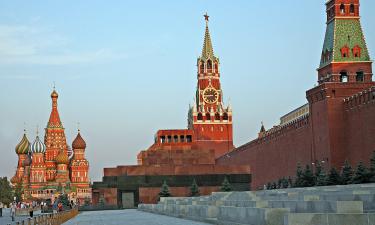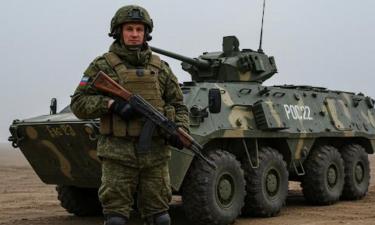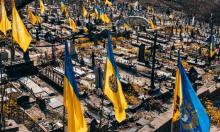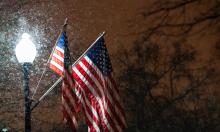State of emergency declared in Basra in bid to end increasing violence
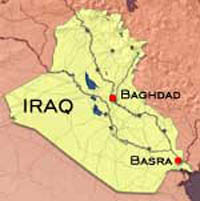
Tensions have been worsening in the Shiite-dominated area, where Britain has about 8,000 soldiers, and mostly Shiite militias have been attacking Sunnis and battling each other.
Standing at a podium with an Iraqi flag as a backdrop, Al-Maliki issued a strong denunciation of a wave of killings and kidnappings that Sunni religious leaders have blamed on Shiite death squads.
Al-Maliki was addressing about 700 tribal sheiks, religious leaders, officials, army officers and other residents in Basra, Iraq's second-largest city, 550 kilometers (340 miles) southeast of Baghdad.
Shouting broke out in the auditorium before al-Maliki delivered his speech, with several tribal leaders accusing local officials and security forces of being behind the mounting violence. But the prime minister calmed them down from the podium, saying "we cannot negotiate with everybody shouting."
Al-Maliki later declared a state of emergency in the southern city of Basra, amid mounting violence, said Sayed Muhammad al-Haidari, a top Shiite official who was traveling with the prime minister. A state of emergency also has been imposed on Baghdad, Diyala and Anbar.
Violence continued elsewhere, a day after car bombs targeting Shiite areas tore through a car dealership in southern Iraq and a bustling outdoor market north of Baghdad as attacks nationwide killed 54 people and wounded 120.
A parked car packed with explosives hit a police patrol in the northern Iraqi city of Mosul on Wednesday, killing at least five policemen and wounding 14, including a senior officer.
Jamal Kadhim Hassoun al-Zamili, former governor of Diwaniyah city south of Baghdad, was killed in a drive-by shooting late Tuesday that also wounded two of his guards, police Capt. Ali Hussein said.
And bomb hidden in an air conditioner exploded in the mayor's office in Muqdadiyah, about 60 miles north of Baghdad, killing the mayor, Sheik Allaywi Farhan al-Dulaimi, a member of the Sunni Iraqi Islamic Party, and wounding three of his guards, police said. Provincial Gov. Raad Rashid al-Mula Jawad imposed a curfew on the city and deployed Iraqi army forces there.
Gunmen killed a Shiite muazzin, the man who calls for the five daily prayers, as he was leaving his house to go to the Imam Ali Mosque in southwestern Baghdad, Hussein said.
A 25-year-old sportscaster for al-Iraqiya TV, Ali Jaafar, also was gunned down in a drive-by shooting near his house in southwestern Baghdad, police Lt. Col. Falah al-Mohammedawi said.
His death came two days after CBS correspondent Kimberly Dozier was seriously wounded and two crew members were killed in a bombing in Baghdad. Dozens of journalists have been killed since the U.S.-led invasion of Iraq in March 2003.
Subscribe to Pravda.Ru Telegram channel, Facebook, RSS!
